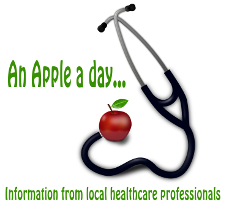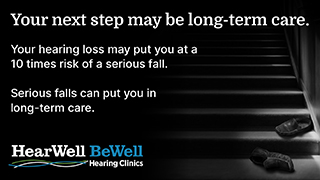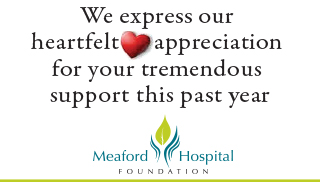By Elaine Burns
 In a recent article in the UK’s National Health Service magazine Choices, a review was offered for reading and understanding health-related articles to help us believe the believable.
In a recent article in the UK’s National Health Service magazine Choices, a review was offered for reading and understanding health-related articles to help us believe the believable.
To paraphrase their opening shot or ‘hook’ let us consider the following headline:
“Coffee Causes Cancer”
This is a scary thought, particularly if you worship regularly at the shrine of St. Timothy of Horton.
However in further reading of the article, it becomes evident that “ injecting five rats with a really concentrated solution of coffee caused some changes in cells that might lead to tumours eventually”. This study was paid for by the Tea Marketing Board. Feeling somewhat different about the headline?
You have just been introduced to critical review.
Again, quoting my sainted grandmother, “you can’t believe everything you read”, or watch or listen to…
So why the misquote? Well, would you be interested in reading, watching, hearing information titled:
“Coffee pretty unlikely to cause cancer but you never know?”
So given that we all will engage with these articles at different times and from different sources, how can you evaluate health information for both believability and relevance to you?
The following steps might help:
-
Who is giving the information?
Is the source believable? Is the source reliable? Does the source have any or access to medical research. Jenny McCarthy is, I’m sure, a lovely lady, but a health expert… I think NOT.
-
Does the research article statement support its claims with scientific research?
-
Is there research?
-
Is the research explained?
-
Is the research published?
-
Does the publishing body have credibility?
-
-
Was the research outlined at a conference?
Conference presentations are often a preliminary step to starting research and as such offer only a supposition. Often conference presentations, if research has been conducted, have not had the research reviewed by peer professionals.
-
Was the research on humans?
Studies on cells or animals may not transpose to humans. They might, but that would not be known until human studies were completed.
-
How many people participated in the study?
Usually, the more the better the results. We all know that the phrase “3 out of 4 dentists” means 75% acceptance right? Well, what if the 3 agreeing dentists were the only 3 in a room of 20? That is a 15% acceptance. But if you take those 3 dentists that agree and one of the non-agreeing dentists you can publish 3 out of 4.
-
Did the study have a control group?
A control group is a number of people taking part in the study but not participating in the treatment or test etc. Control groups should be similar to the study group in age, ethnicity mix, geographical location, and health, so that like comparisons can be made. The best type of control group is a Randomized Control Group. This happens when people are collected for a study and half are assigned to the study and half to the control group. This helps in having an unbiased look at the research results.
-
Did the study actually test what is being reported.
As an example, the article may state: “Tomatoes prevent heart attacks”. With further review we find that the study looked at the effect of Lycopene on blood pressure. The study showed that in some cases Lycopene decreased blood pressure. Lycopene is found in tomatoes. High blood pressure is a risk factor for heart attacks.
Using the old “if it walks like a duck” argument, the author of the article jumped to the headline.
-
Who funded the study?
Even in science there can be a conflict of interest. If a major pharmaceutical company is paying for the research and it would benefit from the result of the study, you should review the information with this in mind. If the research is clean but the reporter could benefit from communicating the research, you should read it skeptically. This could mean they are invested in selling a product based on the information; again, think of all those ‘health claims’ on the internet. It could mean they are invested in getting you to come to them for therapy. They could be advertising a book they wrote on the subject, or seeking to increase ratings on a radio or TV show.
This doesn’t necessarily discount the research, it just means you need a little wariness when reading it.
Studies show that 33-40% of press releases exaggerate cause, advice, and/or inference.
These steps can help you digest reports and make your own determination of their validity. Your Health Practitioner is best suited to help you look at the relevance of any claims to your specific health.
Now where do you go to find information? The following is a list of some reputable sites:
-
The College of Family Physicians of Canada. This site at www.cfpc.ca has a special section for patient information. Click on Resources, then For Patients.
-
Canadian College of Naturopathic Medicine. Go to the site at www.ccnm.edu/research. They have articles for patients.
-
The Mayo Clinic. At www.mayoclinic.org they have an extensive list of patient information. You need to bear in mind that this information is based on healthcare in the United States. Things in Canada may be different.
-
Princess Margaret Hospital. This is an excellent website for all information about cancer and cancer-related issues. Go to www.uhn.ca/princessmargaret. Go to their Patient and Family Libraries and click “search catalogue”.
-
Other good sources include searching the organization representing any disease specialty. For example:
-
The Heart and Stroke Foundation
-
The Kidney Foundation
-
The Alzheimer’s Society
-
The Ileitis and Colitis Foundation
-
The Lung Association
-
Canadian Diabetes Association
-
This list can be unlimited. Remember just because it is published in one of these reputable sources doesn’t mean it fits you or that the research is valid. You have now the ability to judge that for yourself.
Happy searching, happy appraisals!
Remember, if you have a general question about a health issue you can ask questions at: elaine@themeafordindependent.ca.











